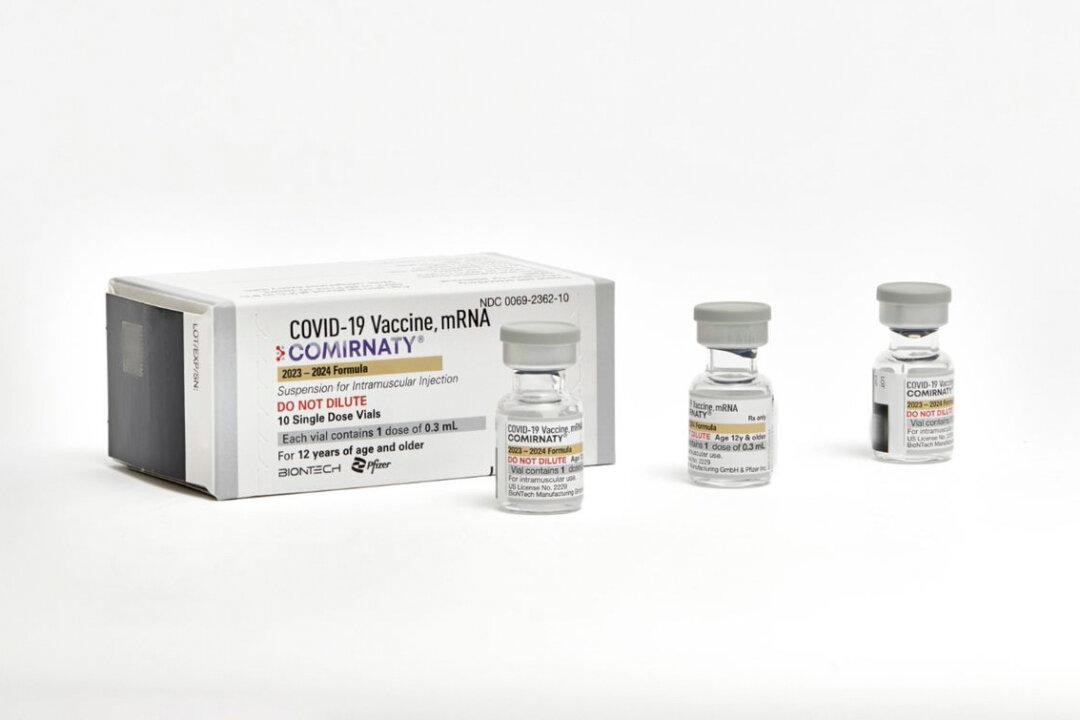U.S. drug regulators on Sept. 11 cleared new COVID-19 vaccines to try to counter the poor effectiveness provided by the current options.
The U.S. Food and Drug Administration (FDA) cleared shots from Moderna and Pfizer that will be available to Americans as young as 6 months old later this month.






